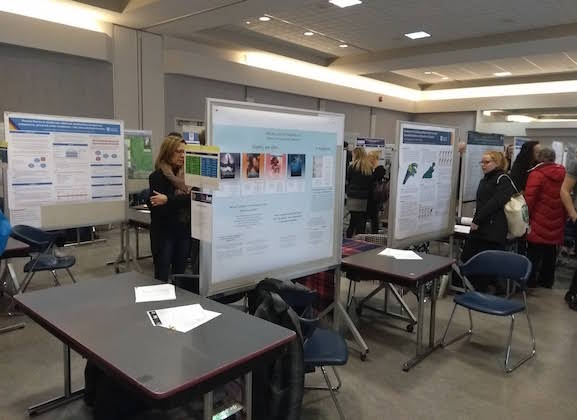What I Wish I’d Known About JCURA Projects Before I Started
Guest post by Kim Dias
In the 2018-2019 school year, I received a Jamie Cassels Undergraduate Research Award (JCURA). This award allows undergraduate students to research a project of their choosing under the mentorship of a faculty advisor. They also receive an award of $1500.
Over the course of the academic year, recipients conduct their research, then put together a poster and present their findings at the JCURA fair in March. It was a great experience and you can read about it here, but there are a few things I wish I’d known going in.
1. Give yourself time
Give yourself a lot of time for this project. No, more time than that. No, more time than that.

Time management with JCURAs is hard, since the only deadline is seven months from your start date. On top of that, you’re not being graded, so it’s easy to push it to the side in favour of projects that are receiving a grade.
Don’t do that. I did, and the week before the fair was spent in a haze of panic, trying to finalise my research and put a poster together. That’s a pretty common feeling for anyone who’s ever been a student—who hasn’t stayed up all night writing a paper that’s due tomorrow?
But JCURA is different. This wasn’t a paper I would be submitting to a prof, getting a grade on, and never thinking about again. This was a poster dozens of people would see. I wanted to stand in front of and talk about work I was proud of.
Start work on your JCURA early. Dedicate a little bit of time to it each week rather than squeezing it all into the final month. This is a chance for you to show off your research and ideas—put together a product that you’re proud of.
2. Ask for help
I’d never gone to the Centre for Academic Communication (CAC) before, but when I was putting my JCURA poster together, it was a lifesaver. I struggle with visual presentations and had no idea where to even start.

I made an appointment with the CAC, showed up clutching my scrap of hastily-scribbled ideas, and in half an hour, my tutor had helped me turn those scribbles into something that wasn’t only legible, but would also act as a map for me throughout the rest of the poster-making process.
Having support helped me so much when I was working on my JCURA. I had two friends also working on JCURAs, and many late-night texts were exchanged, full of anxieties and reassurances. We consulted each other on printing options, the best ways to convey information, the choice of images versus text.
Don’t be afraid to reach out to the people around you while doing your JCURA, whether it’s seeking out a tutor, attending workshops, or asking questions of other JCURA students. I only took advantage of it in my last two months of research, and I wish I had done it sooner.
3. Don’t be afraid to experiment
I spent so much time hung up on what everyone else’s poster would look like. What if my poster didn’t look good? What if it was too cluttered? Was it boring? Was it academic enough? Was there something more interesting I should be doing?
All these anxieties ruined my ability to enjoy the process of research and design. Luckily, by the end, I managed to let them go and create a poster I liked and was proud of, but the process was much more stressful than it needed to be.
There isn’t one set of fixed rules for what a JCURA poster needs to look like. There’s such a huge variety in not only design, but also research topics. Some posters were very academic; others were more artsy; some talked about lived experience, others were all graphs and statistics; one featured screenshots from the Harry Potter series.
Mine was powder-blue and covered in movie posters and book covers. It didn’t look at all like a science fair poster—but that’s not what JCURA is. JCURA is a mishmash of disciplines and individuals, and it’s so much fun to wander through and look at all the variety within people’s work.
Don’t be afraid to be a little out there with your poster. This is your project—make it uniquely you and don’t worry about what others are doing. You’ll feel happier for it, I promise.
The deadline for JCURA nominations is June 30. You can find more information on applying on the JCURA website.





